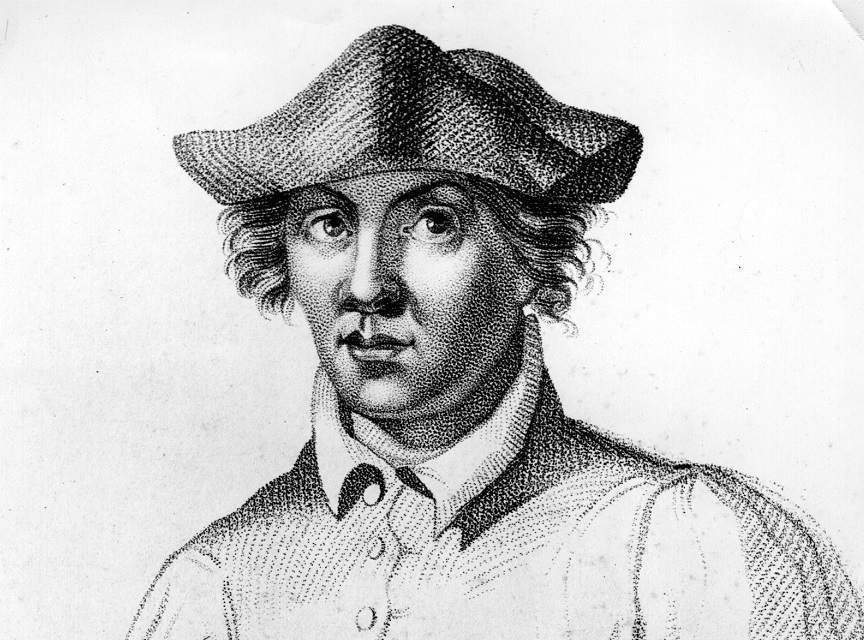
John the Pupil
David Flusfeder
Fourth Estate, 240pp, £14.99
“All historical novels are failures, or, at best, metaphors, dressing up the present day in anachronistic disguise.” So complains the fictional academic invented by David Flusfeder to frame and gloss the medieval pilgrimage at the heart of his seventh novel. Flusfeder is not the first historical storyteller to fret like this over his ethics and methods. Treating the remote past with narrative techniques that did not emerge until the 19th century is a problematic business and writers working in the genre bump up constantly against difficulties of language and form.
How they address them depends on what they are trying to do. In the Man Booker Prize-longlisted novel The Wake, set during the Norman conquest, Paul Kingsnorth bolts together bits of Old, Middle and modern English in order to describe “a folc harried beatan a world brocen apart”, suggesting a time and a world-view so distant that readers need a new language to understand them. Adam Thorpe’s superb 1992 debut, Ulverton, told its story through meticulously faked documents from the history of an English village; his Hodd (2009) similarly filtered its Robin Hood tale through a dodgy translation of a medieval-Latin original. Such novels attempt to challenge the bland imaginative transpositions of historical romance, suggesting in their forms the difficulty of getting a clear signal from the past.
Other writers employ the opposite method. Hilary Mantel’s lithe modern prose in her Tudor novels reanimates our understanding of a period that is so often smothered in ye-olde cliché, while the breezy modernity of Robert Harris’s style allows the reader to see his Cicero books through the prism of the war on terror or to approach An Officer and a Spy (2013), his thriller about the Dreyfus affair, with WikiLeaks and whistleblowers in mind.
David Flusfeder mixes a little of both approaches in John the Pupil, a novel that follows three students of the medieval philosopher-savant Roger Bacon who make a secretive journey from England to the seat of the papacy at Viterbo. In their baggage is a copy of Bacon’s Opus Majus, “a magnificence of learning and opinion and ingenious device, which tells of the world and how it is viewed and the arc of the rainbow and the movements of stars and of health and immortality and engines of war”.
Bacon, a Franciscan barred by a mistrustful order from promulgating his theories, is hoping for the pope’s patronage and protection. His apprentice John, the narrator of the tale, is a 19-year-old boy making his first trip out of the monastery, who has “never seen a soldier, or a lion, or a feast on a great man’s table, or a demon or an angel or a nun or a unicorn or a bride or a Jew”. His companions are Bernard, a grumpy drunkard with a talent for drawing, and Andrew, a beautiful youth “who may not resist sensation” and fails serially to do so with a string of willing local girls.
As the three young clerics cross France and Italy, encountering brigands, unscrupulous pilgrims, Albigensian heretics and, oddly, Dante’s pal Guido Cavalcanti on their way, John records the journey on strips of scavenged parchment. Some time between 1267 and the present – so runs the book’s conceit – these fragments have been gathered and arranged by a dubious antiquarian, then reshuffled and translated by a contemporary editor, whose afterword purports to fill in their lacunae but makes troubling modern interpretations of its own.
This sounds like quite a headful but anyone expecting Pale Fire-ish metatextual shenanigans may be bemused by the tart modesty of their execution and by the small space they occupy. Flusfeder’s publishers haven’t done him many favours by puffing the book as a cross between Umberto Eco and Quentin Tarantino, because his droll, elegant prose takes a much stealthier approach than either of those two show-off maestros. He is fascinated by the gaps in knowledge and narrative that interfere with our reception of the past but he is equally intrigued by the strange and god-ridden landscape of medieval thought, suggesting its piety, suffering and awe in a subtly disordered idiom that sets and meets several etymological challenges.
The result is a novel of quiet suggestion and unobtrusive cleverness that ends up leaving a flatteringly large amount to the reader’s imagination. One suspects there’s a cryptic authorial smile lurking behind John’s sad observation, late in the novel, that one of his companions on the road still doesn’t quite trust him. “He suspected me,” he says, “of art.”





